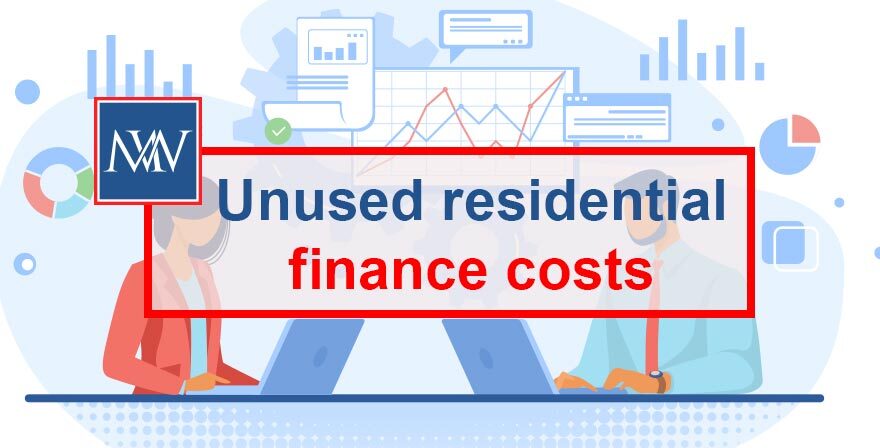
Unused residential finance costs
Since 2017/18, the amount of income tax relief that landlords with residential properties have been able to claim on residential property finance costs (e.g. mortgage interest) has gradually been restricted such that for the year 2020/21 the restriction is now given as a tax reducer at the basic rate of tax (i.e. 20%). Loans that are wholly for commercial properties, land and property dealing or development businesses or properties used for a furnished holiday letting business are not affected.
Landlords affected by this restriction may have noticed a box on the 2020 tax return as being Box 45 – Unused residential finance costs brought forward.
Completion of this box records the amount of interest that has not been utilised in one year to be carried forward and to the finance costs figure of the following year. The tax reduction for that following year is then calculated using both the amount brought forward and the current year’s finance costs. The tax reduction applies to each property business separately such that any ‘excess’ tax reduction on an overseas property business cannot be used against a UK property business or share of partnership property business or vice versa. If the property has made a loss then no tax deduction will be given either and the unused finance cost amount for that year will be carried forward and utilised in the following year’s calculations. The tax reduction cannot be used to create a tax refund.
Calculating the amount of restriction to be applied can be complicated in some circumstances. The amount to claim is the lower of the finance costs incurred, the profits of the property business (less losses brought forward) and the taxpayer’s total taxable income (after deduction of the personal allowance but ignoring savings and dividend income). This restriction may result in an amount being disallowed, therefore the amount not used is carried forward to be utilised in any following year and recorded in box 45.
Basic Example:
Tax year 2019 – 2020
Employment before tax = £40,000
Rental income = £21,000
Other expenses = £(8,000)
Property profits = £13,000
Finance costs = £14,000 (£3,500 allowable against rental income – 25%)
Taxable income = £49,500 (£40,000 + £13,000 – £3,500)
Income Tax calculation:
£49,500 less personal allowance (£12,500) = £37,000
Tax due: (£37,000 x 20%) £7,400
Finance cost tax reduction calculated
on property profits (£9,500 x 20%) £(1900)
Final Income Tax = £5,500
The tax reduction is calculated as 20% of the lower of:
- finance costs = £14,000
- property profits = £9,500
- adjusted total income (exceeding personal allowance) = £49,500
The lowest figure is property profits, so £9,500 x 20% = £1900 tax reduction. £1,000 finance costs (£10,500 – £9,500) that have not been used are shown in box 45 and carried forward being added to the finance costs for that year and then the total amount restricted accordingly.
If a landlord has brought forward amounts of restricted finance costs from earlier years and has receipts from their property business of £1,000 or less then they have the choice of either claiming expenses and using the reducer calculation in the normal way or claiming the Property Income Allowance (PIM) tax exemption. If they choose the PIM route then the restricted finance costs figure is carried forward to be used in any future years’ income tax liability calculation. Individuals can decide on a year by year basis which approach to take.
The ability to carry forward unused finance costs will be beneficial to those landlords with a temporary reduction in property income possibly because a property is vacant for a period or a short-term increase in costs (e.g. due to refurbishment).
For more information , Book a Free Consultation
Need Accountancy Support?
For information on bespoke training, or if you have any other questions for Makesworth Accountant, please fill in your details below
















 151
151